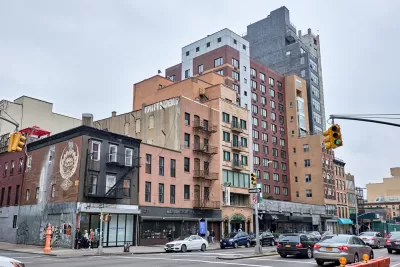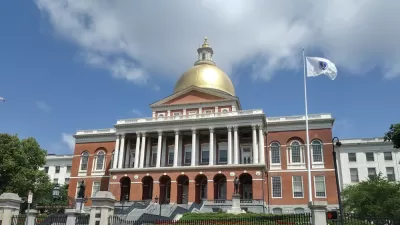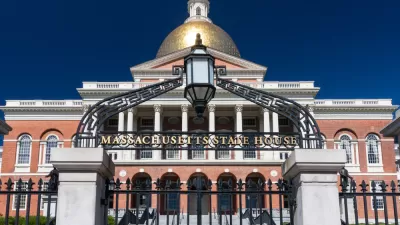Far from an obscure, wonky local issue, zoning reform has the potential to advance social justice in American cities.

The recent focus on the effects of exclusionary zoning is a crucial part of reforming housing policy and addressing discrimination and racism in housing and land use in the United States, writes Richard D. Kahlenberg in the New York Times. "Although zoning may seem like a technical, bureaucratic and decidedly local question, in reality the issue relates directly to three grand themes that Joe Biden ran on in the 2020 campaign: racial justice, respect for working-class people and national unity." Eliminating "economically discriminatory zoning policies," argues Kahlenberg, is a crucial step toward advancing those campaign goals.
"Removing exclusionary barriers that keep millions of Black and Hispanic people out of safe neighborhoods with strong schools is central to the goal of advancing racial justice." Despite a Supreme Court decision that struck down racial zoning in 1917, new policies like single-family zoning and redlining soon took its place, effectively creating the same barriers for families of color. "Racial discrimination has created an enormous wealth gap between white and Black people, and single-family-only zoning perpetuates that inequality." In fact, "the most restrictive zoning is found in politically liberal cities, where racial views are more progressive," relying on mechanisms that separate households by income and class to keep neighborhoods segregated. "Class discrimination helps explain why, despite a 25 percent decline in Black-white residential segregation since 1970, income segregation has more than doubled."
Reforming zoning, writes Kahlenberg, is necessary for achieving racial and economic justice. "After decades of federal inaction on this issue, Congress must move boldly to embrace the country’s anti-racist and anti-elitist mood to remove state-sponsored barriers that divide the nation’s people."
FULL STORY: If You Care About Social Justice, You Have to Care About Zoning

Planetizen Federal Action Tracker
A weekly monitor of how Trump’s orders and actions are impacting planners and planning in America.

Congressman Proposes Bill to Rename DC Metro “Trump Train”
The Make Autorail Great Again Act would withhold federal funding to the system until the Washington Metropolitan Area Transit Authority (WMATA), rebrands as the Washington Metropolitan Authority for Greater Access (WMAGA).

The Simple Legislative Tool Transforming Vacant Downtowns
In California, Michigan and Georgia, an easy win is bringing dollars — and delight — back to city centers.

The States Losing Rural Delivery Rooms at an Alarming Pace
In some states, as few as 9% of rural hospitals still deliver babies. As a result, rising pre-term births, no adequate pre-term care and "harrowing" close calls are a growing reality.

The Small South Asian Republic Going all in on EVs
Thanks to one simple policy change less than five years ago, 65% of new cars in this Himalayan country are now electric.

DC Backpedals on Bike Lane Protection, Swaps Barriers for Paint
Citing aesthetic concerns, the city is removing the concrete barriers and flexposts that once separated Arizona Avenue cyclists from motor vehicles.
Urban Design for Planners 1: Software Tools
This six-course series explores essential urban design concepts using open source software and equips planners with the tools they need to participate fully in the urban design process.
Planning for Universal Design
Learn the tools for implementing Universal Design in planning regulations.
Smith Gee Studio
City of Charlotte
City of Camden Redevelopment Agency
City of Astoria
Transportation Research & Education Center (TREC) at Portland State University
US High Speed Rail Association
City of Camden Redevelopment Agency
Municipality of Princeton (NJ)





























